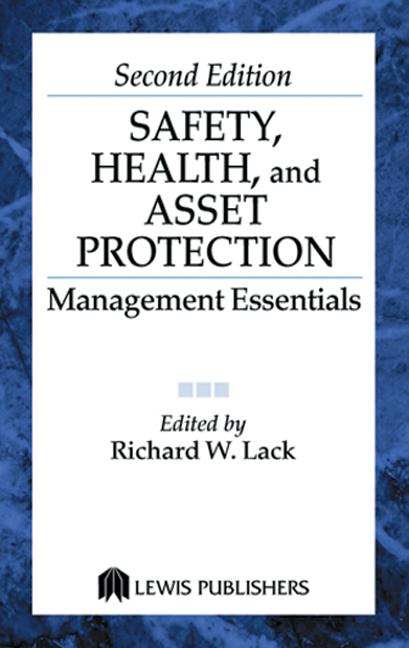Weekly news round-up

Fatalities in the cell tower industry, another train derailment spills oil and chemical safety were among this week’s top EHS-related stories as featured on ISHN.com.
Respirator Care = Safe to Wear!
A NIOSH Science Blog post
An SCSR is a lifesaving device that miners depend upon in times of emergency to escape from a hazardous environment within the mine. To keep this important device functioning reliably, daily inspections and upkeep become a ‘life or death’ matter. Though you may consider this to be a high-maintenance relationship, it is worth the necessary attention.
Dear Cell Tower Industry: Stop Fatal Falls
OSHA sends letter urging adherence to safety standards
An alarming uptick in the number of fatal falls in the cell tower industry has resulted in OSHA reaching out to the National Association of Tower Erectors and other industry stakeholders with safety reminders. The agency has launched a new Web page with educational resources about communication towers and distributed the following letter earlier this week:
Train derails in Penn., spilling thousands of gallons of oil
Company official says spill is “contained”
Less than two months after a similar incident in North Dakota, a train carrying crude oil derailed yesterday in Pennsylvania, spilling an estimated 3-4,000 gallons of oil. Twenty-one tank cars of the 120-car Norfolk Southern Corp. train left the tracks at a turn near the Kiskiminetas River in Vandergrift, a small town in western Pennsylvania.
CDC: Excess sugar increases risk of death
We knew it helped make us fat, but in a study released recently by the CDC, excess sugar is also blamed for significantly increasing our risk of death from heart disease. The study focused on refined sugar, which is found in non-diet soda, cakes, cookies and candy.
NIH study offers insight into why cancer incidence increases with age
The accumulation of age-associated changes in a biochemical process that helps control genes may be responsible for some of the increased risk of cancer seen in older people, according to a National Institutes of Health study.
AIHA throws support behind NIOSH carcinogen update
Association backs making RELs based on risk, not technical achievability
The American Industrial Hygiene Association (AIHA) expresses its appreciation to the National Institute for Occupational Safety and Health (NIOSH) for the opportunity to comment on the NIOSH Draft Current Intelligence Bulletin “Update of NIOSH Carcinogen Classification and Target Risk Level Policy for Chemical Hazards in the Workplace.”
Roofers say proposed silica rule could make their jobs more dangerous
No room for fall protection equipment?
OSHA’s proposal to safeguard workers by reducing silica exposures disregards “the unique nature of roofing work” and may actually making roofers’ jobs more dangerous, according to the National Roofing Contractors Association (NRCA).
Maryland bill would factor contractor safety into state contract bids
Maryland lawmakers introduced a bill this week that would require companies to meet safety standards as a prequalification for working on public projects in the state. House Bill 951 (with 22 sponsors) and Senate Bill 774 (with 13 sponsors) were introduced by Maryland Delegate Brian McHale (D-46) and Senator Karen Montgomery (D-14).
Shiftworkers have more “pro-inflammatory” diets
Diet may help explain shiftwork-related chronic disease risks
People who do shiftwork are more likely to have a diet that promotes chronic inflammation — which may partly explain the health risks associated with shiftwork, reports a study in the February Journal of Occupational and Environmental Medicine, official publication of the American College of Occupational and Environmental Medicine (ACOEM).
OSHA issues proposed rule to extend compliance date for crane operator certification requirements
OSHA has issued a proposed rule to extend the compliance date for the crane operator certification requirement by three years to Nov. 10, 2017. The proposal would also extend to the same date the existing phase-in requirement that employers ensure that their operators are qualified to operate the equipment.
La. worker burned in chemical fire; company cited
A chemical fire that left an employee at a flavoring manufacturing facility led to 19 serious safety and health violations against Carol Callahan, doing business as Natural Advantage. The incident occurred in August 2013 at the company’s Oakdale, Louisiana facility. Proposed penalties total $91,000.
Captain’s decision to sail into path of hurricane caused ship to sink
Two died injured when ship that “chased hurricanes” encountered Hurricane Sandy
A captain’s “reckless decision to sail into the well-forecasted path of Hurricane Sandy” was the probable cause of the sinking of a ship off the North Carolina coast in October 2012, the National Transportation Safety Board said in a report released yesterday. The captain and one crewmember died in the accident. Three other crewmembers were seriously injured.
OSHA joins forces with fertilizer industry to spread word about chemical safety
With the devastating April 2013 explosion in West, Texas still fresh in the minds of Americans, OSHA is hoping that a just-initiated partnership with the Agricultural Retailers Association and The Fertilizer Institute will help prevent future tragedies involving ammonium nitrate – the culprit in the West, Texas catastrophe.
Safety professionals need to examine how they manage OHS reports
If a worker is injured slipping from a ladder while accessing an electrical panel, does this incident warrant more training on the employee’s part on how to properly use a ladder or does it call into question larger organizational issues that should be addressed?
People worried about indoor air quality as well as outdoor
Over half of consumers in Asia, Europe and the USA are worried about their indoor air quality, according to exclusive new research by CINT research commissioned by Blueair, the global indoor air purifier manufacturer. Some 57 percent of men and women aged between 25-50 years in China, Japan, Sweden, the UK and United States said they were concerned about the quality of their indoor air, although just 37 percent said they were worried enough to buy an indoor air purifier.
MSHA’s Main: Violations per inspection are down
Agency chief outlines improvements in recent speech
I appreciate the opportunity to be here today to update you on the actions taken by MSHA and the mining community to improve mine safety and health, and on the results. Over the past year, MSHA has implemented several changes, continuing the transformation we have made to our agency, and to mine safety. I will share some of those with you today.
Why hand protection is important
Take a moment to hold your hands out in front of you. Look at them. They are the only two hands you will ever have. It has been estimated that almost 20% of all disabling accidents on the job involve the hands. Without your fingers or hands, your ability to work would be greatly reduced
Looking for a reprint of this article?
From high-res PDFs to custom plaques, order your copy today!






